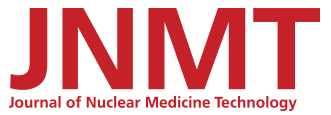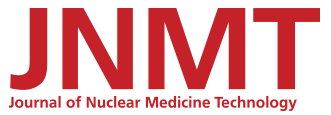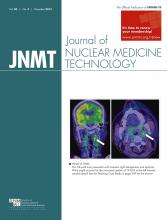Norman E. Bolus, MSPH, MPH, CNMT, FSNMMI-TS
When was the last time that you thanked someone who works for you? When was the last time someone thanked you for a job well done? How often do you receive positive feedback on your job performance or on how you have made an impact on patients’ lives in nuclear medicine? Generally, when negative comments are made, feedback happens quickly and we hear about whatever problem led to the negativity. However, it is not usually the case that we receive positive or impactful feedback as quickly. I think it is extremely important to consistently give positive feedback to employees, although I must admit that I struggle to do this myself. It just seems that we are obligated to respond and react when negative feedback is needed but not so much so when positive feedback is due. Therefore, I am advocating for positive feedback in impactful, satisfying ways.
For instance, in my career as a technologist I can vividly recall having to do a stat brain scan on an epileptic child at 2 a.m. This was a brain seizure study whereby we were trying to find a focal area. Of course the patient ended up seizing on the table and it took me all morning to get the study done. To further exacerbate the problem, I was not even on call that week but was called in because the only other technologist who could do the study was on vacation out of the country. After completing the scan and processing the study, I never heard anything more about that difficult case. No feedback, no thank you, no follow-up information, nothing. That was par for the course; I really did not expect to hear anything more. Sometime later, I was at a conference, and a physician who worked in our group was presenting a case I recognized—the epileptic patient in whom I had found a focal area. The physician shared that this family had searched the entire country for a specialist who could help their child, that this brain scan led to surgery on the focal area, and that the patient had been seizure-free since then, making a significant difference in the family and child’s life. Wow, it would have been nice if someone had told me—before the conference—that my scan had made such a difference for this family…the scan that I had done despite being mad that I had to come in on call to do a difficult case. Since none of that happened, this case actually led me to seek new employment. So when I found out what a difference this had made, it made me feel like a very little person. However, it also cemented in me the importance of letting others know when their jobs impact others in a positive way. So, I now have the opportunity through this journal to convey to a wide audience the question, how do you let your technologists know what impact they have on the patients they do procedures on? What kind of feedback do you give to the folks who work for you? This will be the Facebook question for this edition of JNMT. Please go to www.snmmi.org/facebook and add your comments.“Other times, you’re doing some piece of work and suddenly you get feedback that tells you that you have touched something that is very alive in the cosmos.”
—Leonard Nimoy
In this edition of JNMT we have two unique continuing edition articles: one on the theory of radiation hormesis and the other on electrocardiogram interpretation. There is an invited perspective on the possible alternative use of ethacrynic acid in renal scans; articles on positioning techniques, lymphoscintigraphy transmission imaging, image acquisition techniques, and a new compound for multimodality procedures; several interesting case studies; and a letter to the editor questioning the best terminology for targeted therapies in the future. There are also informational columns on the SNMMI-TS chapters and on our international partners.
In line with my editorial, as this year comes to an end I would like to thank those who make the JNMT possible: my associate and consulting editors here in the United States and internationally, the volunteer reviewers, the authors, and the SNMMI journal staff. To all who make this journal happen, I offer a big thank-you; your work has an impact on everyone in this field.








